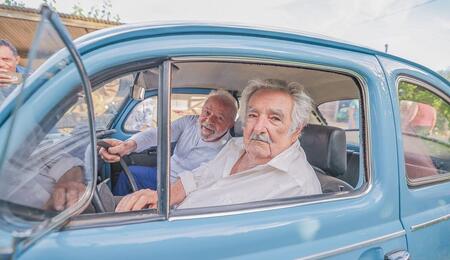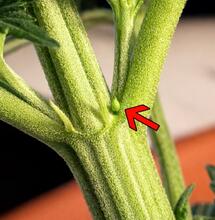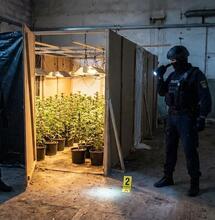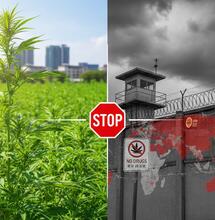Pepe Mujica, Uruguay President Who Legalized Marijuana Has Died

José “Pepe” Mujica, who humbly served his country Uruguay as president between 2010 and 2015, died on May 13 at his farm in Rincón del Cerro, on the outskirts of Montevideo. He was 89. A farmer and revolutionary, Mujica will be remembered as the first president in the world to legalize cannabis. The world would have been a better place if it had more exemplary leaders like him.
Who Was José Pepe Mujica?
Pepe Mujica was much more than a politician. He was a former guerilla of the Movimiento de Liberación Nacional-Tupamaros (MLN-T) in the 1960s, an urban leftist organization that sought to take state power by force. He was captured and wounded multiple times, and was also subject to torture and inhuman treatment while spending 14 years in prison. Most of that time he spent in solitary confinement, in extremely small space, where he got the “vice” of talking to himself, he recounted recently.
“Of course I have open wounds! I have unforgettable things. But I’m not going to get even. I was locked up for seven years in a room smaller than this one. Without a book, without anything to read. They took me out once a month, twice a month, to walk around a courtyard for half-an-hour. Seven years like that,” he said in an El Pais interview from 2024.
As Uruguay returned to democracy, Mujica was released from prison in March 1985. He would describe the moment as the happiest memory of his life. Going back into politics, he became involved with Frente Amplio, the Uruguayan democratic left coalition, and became the country’s president in 2010.
What Was Pepe Mujica’s Ideology?
Although many described him as a Marxist, Mujica defined himself otherwise: “I know I am a half-crazy old man, because philosophically I am a stoic because of the way I live and the values I defend,” he stated in a last year interview with BBC Mundo. “Stoicism is older than Christianity. That’s why the sobriety with which I live.”
His life and his words always reflected that austere philosophy, away from luxury and the privileges of power. Even as president, he lived on his modest property and continued to drive an old 1987 light blue Volkswagen Beetle, which came to symbolize his figure to the point that other countries received him with similar vehicles.
He was often said to be ‘the world’s poorest president,’ but Mujica refused being called poor. “Poor are those who want more, those who can’t afford anything,” he defied newspaper headlines.
The President Who Legalized Cannabis
One of the most outstanding legacies of Mujica’s presidency was the legalization of marijuana. After signing a law that was passed in December 2013, Uruguay became the first country in the world to regulate the cannabis market, from production to sale, under state control. Medicinal, recreational and industrial use of the plant were all allowed.
Mujica never defended drug use, and he also claimed to have never tried cannabis. He upheld his decision to legalize, explaining that too many people were being put into jail because of cannabis and the government was spending excessive amounts of money on repression. “Do not think that I am defending marijuana,” Mujica remarked at the time. “I declare that love is the only healthy addiction on the face of the Earth. All other addictions are a plague, whose harm has varying degrees.”
Further explaining Uruguay’s legalization policy to journalists he said the biggest advantage with it was being able to identify who is consuming cannabis. “If we identify consumers, we can help them. If we criminalize them and keep them underground, we steer them towards drug dealers and wash our hands of responsibility,” he said.
The Last Stoic of Our Times
Mujica not only preached, but he lived what he believed in. He rejected privileges, he refused being rolled the red carpet, and even returned back part of his presidential salary.
He died on May 13, on his farm outside capital Montevideo, where he spent his last days accompanied by his spouse Lucía Topolansky and his closest relatives. He was diagnosed with terminal cancer a year ago.
He would be remembered for his incomparable character. Someone who escaped prison twice, survived six bullets, total isolation and torture while in prison, and who after all that was done to him, was able to live with little - without hatred or rancor.
“I gave meaning to my life; I’ll die happy,” he said in one of his last interviews. “I dedicated myself to changing the world and I didn’t change a damn thing.”
More from Soft Secrets:













